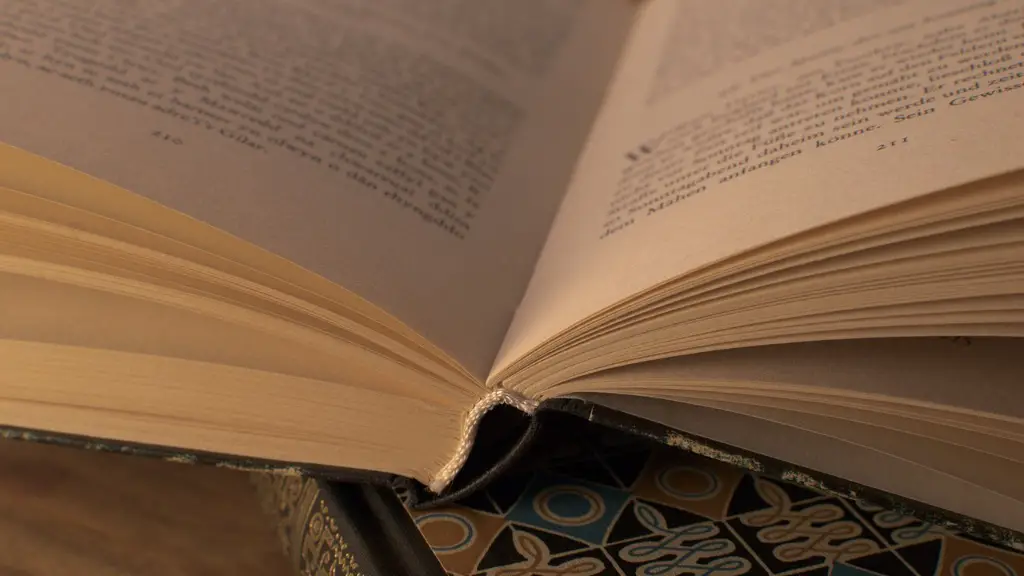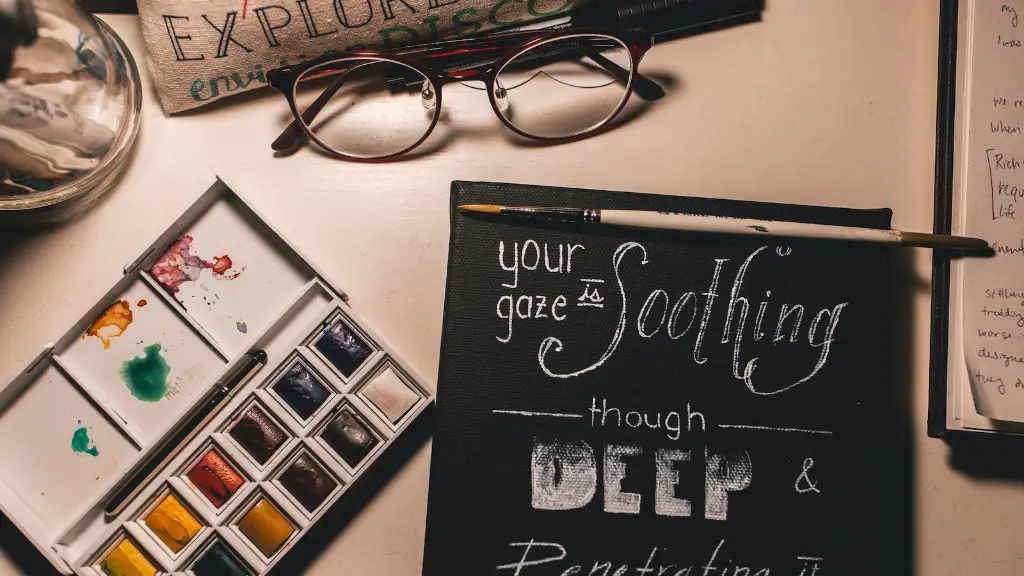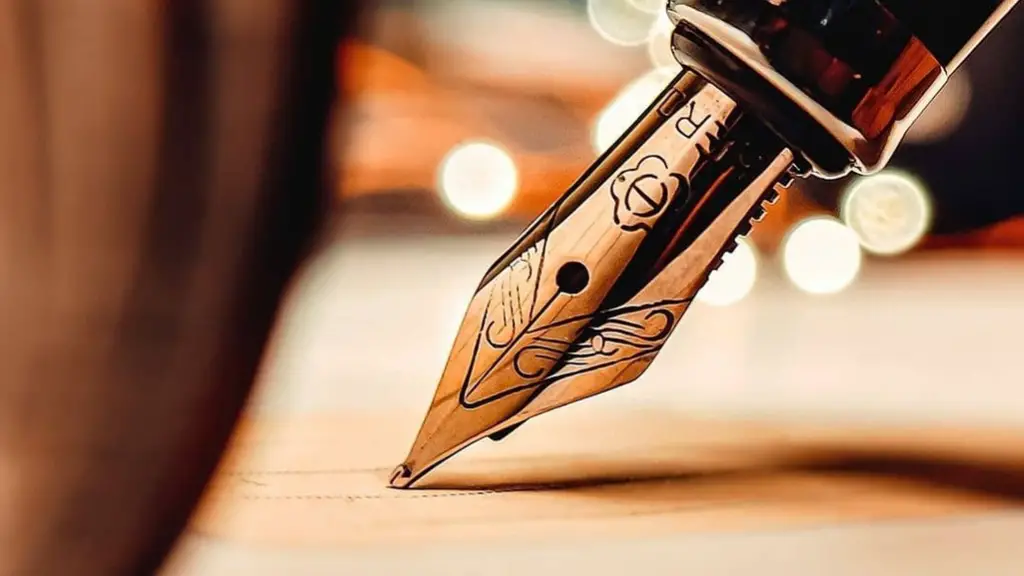Emily Dickinson has been a major force in American poetry for over a century and continues to inspire new and established poets. Born in Amherst, Massachusetts in 1830, she began writing poetry when she was 11 and was prolific up until her death in 1886. She wrote over a thousand poems, most of which were published posthumously. Dickinson is known for her pioneering use of free verse and innovative explorations of language and form. Her influence on the history and development of modern American poetry has been profound and lasting.
One of Emily Dickinson’s most significant contributions to American poetry was her unique style of lyricism. She was an innovator in her use of meter and rhythm, often employing a strict and complex metrical form to generate a highly charged and passionate poetic effect. Her work also features long poetic lines, which she sometimes completely disregarded metrical rules. Dickinson was unafraid to toss convention out of the window, taking great risks with words and pushing the boundaries of language. Her use of unconventional grammar and punctuation also helped to break away from traditional, formalised verse. Many of her poems, such as “Because I Could Not Stop For Death” and “Wild Nights – Wild Nights!”, offer profound insights into death, nature and the human condition.
In addition to her innovative approach to language and form, Dickinson is renowned for her captivating metaphors. She was a master of metaphor and used it to explore and express the deepest feelings and emotions of the human experience. The metaphors she employed in her poetry were often complex, layered and pregnant with symbolism. Dickinson’s mastery of metaphor is evident in many of her most famous poems, such as “I’m Nobody! Who are you?” and “My Life Closed Twice Before Its Close”.
Emily Dickinson’s writing has had a profound impact on the development of modern American poetry. Her unique and often revolutionary technique of using language and form has inspired generations of poets. Her exploration of death, nature and the human condition has been widely influential, and her mastery of metaphor has won her lasting critical acclaim. In the words of critic Randall Jarrell, “Dickinson’s labor yields poems of almost unimaginable power, poems that remain in the reader’s mind as do no others”.
Context of the time period
During Dickinson’s lifetime, American poetry was undergoing significant changes. 19th century poets experimented with a wide variety of forms, rhythms and styles. The Transcendentalists, a group of American writers and thinkers led by Ralph Waldo Emerson and Henry David Thoreau, developed a philosophy of nature and self-reliance that would later become enshrined in Dickinson’s poetry. Dickinson’s poetic predecessors such as Walt Whitman, Emily Bronte and Emily Bronte’s sister, Anne Bronte, developed their own distinct styles. Dickinson was inspired by all of these diverse literary currents of her time and incorporated many of their ideas into her work.
Poetic Innovation
Dickinson’s poetry stands apart from the Romantic, Transcendental and Victorian poetry of her day. Although she often made use of traditional forms, her approach to lyricism was often groundbreaking. Dickinson experimented with meter and form, often creating long and intricate lines of verse. She was unafraid to break away from convention, taking risks with language and exploring new ideas. Her work also features an innovative use of punctuation, often breaking up words and phrases into multiple lines as well as eliminating punctuation altogether. In this way, Dickinson pushed the boundaries of conventional 19th century poetry and created her own unique style.
Fame Posthumous
Although unpublished during her lifetime, Emily Dickinson’s literary legacy has grown exponentially since her death. Her work has been read, studied and celebrated by modern generations of poets and readers. During her lifetime, Dickinson had a relatively small audience, but since her death her influence in American poetry has been undeniable. Many of her poems have become staples of American poetry classes and have been widely anthologized. Her influence has been felt in the works of contemporary poets such as Sylvia Plath, Anne Sexton and Adrienne Rich, who have all been heavily influenced by her work.
Legacy
Emily Dickinson’s legacy can be seen in the works of subsequent generations of American poets. Her unique use of language, form and metaphor as well as her exploration of death and the human condition have inspired countless poets. Her impact on modern American poetry has been profound and lasting. Her work continues to embolden and challenge poets and readers alike, reminding us to take risks and explore the unknown. Her influence will undoubtedly be felt for many generations to come.
Dialogue and Visual Art
Although Dickinson’s poetry has been largely celebrated, her influence can also be seen outside of literature. Her work has inspired a number of visual artists, such as the painters Edward Hopper and Georgia O’Keeffe, who were heavily influenced by her writing. Moreover, Dickinson’s poetry has also been adapted into a variety of musical and theatrical works, from operas to pop songs. In this way, Dickinson’s unique voice and approach to poetry has resounded in other mediums, inspiring generations of artists and thinkers.
The Writing Process
While Emily Dickinson was a prolific poet, little is known of her creative process. Her poems were rarely polished when she died and many of them feature unfinished drafts and variations. This suggests that Dickinson was always searching and experimenting. Dickinson rarely shared her work with anyone during her lifetime and her writing was very much a solitary exercise. While there are some speculations, Dickinson’s writing process remains largely mysterious. On the one hand, it may have been a contemplative, meditative and introspective practice while, on the other, it may have been a highly intuitive and improvisational process.
Emily Dickinson Today
Emily Dickinson’s work has been celebrated for over a century, with her poems inspiring generations of poets and readers. Dickinson’s influence can be seen in the works of countless poets, from the modernists to the post-modernists. Her unique and often revolutionary approach to language and form continues to inspire poets. Furthermore, her exploration of death, nature and the human condition has resonated with people around the world. Emily Dickinson is an immortal icon of American poetry and her influence will undoubtedly live on for many generations to come.


